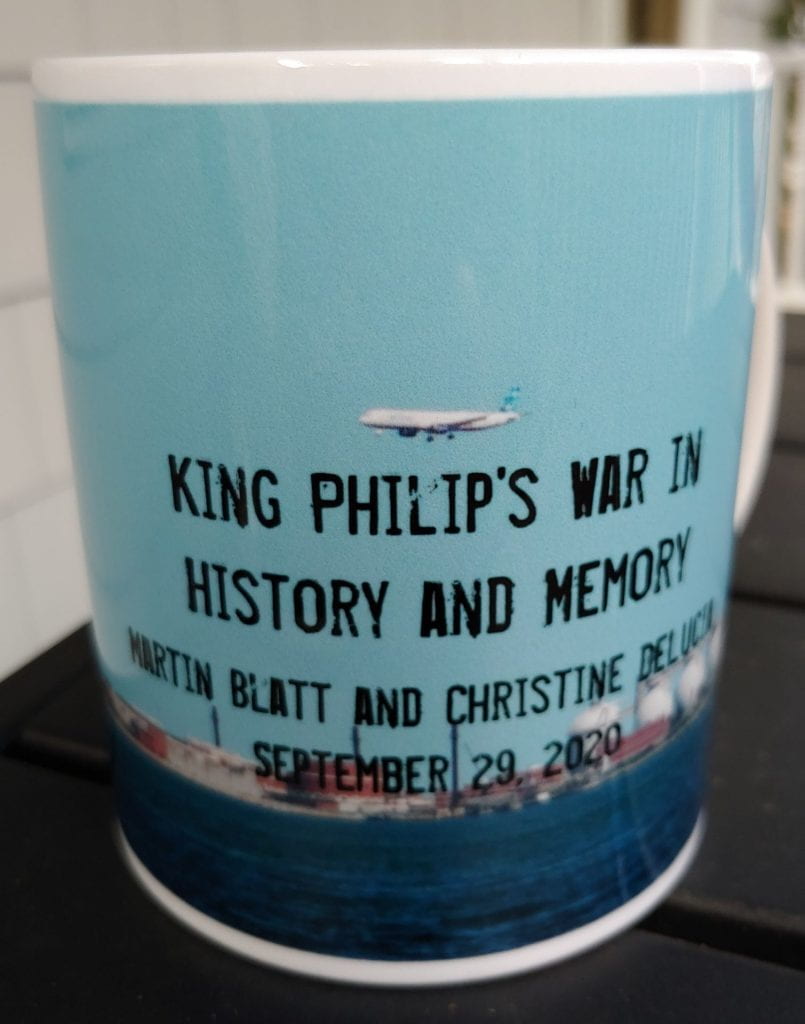 Our second lecture and discussion is with Marty Blatt, Affiliate Professor of the Practice and former Director of the Public History Program at Northeastern University, Christine DeLucia, Assistant Professor of History at Williams College and author of the recent award-winning book Memory Lands: King Philip’s War and the Place of Violence in the Northeast.
Our second lecture and discussion is with Marty Blatt, Affiliate Professor of the Practice and former Director of the Public History Program at Northeastern University, Christine DeLucia, Assistant Professor of History at Williams College and author of the recent award-winning book Memory Lands: King Philip’s War and the Place of Violence in the Northeast.
Readings:
William Apess, “Eulogy on King Philip,”January 26, 1836.
Cambridge Proclamation on William Apess Day.
Mug battle challenge question (courtesy of Marty Blatt): The Indian Imprisonment Act was enacted in 1675 by the MA General Court during King Philip’s War. It prohibited unaccompanied Native Americans from entering the town of Boston. What year was this law repealed?
Answer: 2005. Many students guessed 2003 and 2004 because of an article in the New York Times, but those who read Memory Lands carefully–and there were many knew that it was not officially repealed until 2005. Congrats to Emma Richards for winning it in a showdown!
Further reading: Jill Lepore makes a provocative argument about the foundational nature of King Philip’s War, and the narratives constructed in its aftermath, in shaping colonial English and ultimately American identity in The Name of War: King Philip’s War and the Origins of American Identity (Knopf, 1998). Lisa Brooks refocuses our understanding of the war to the perspective of indigenous resistance in Our Beloved Kin: A New History of King Philip’s War (Yale, 2018). Both books won the Bancroft Prize in American History.
(In keeping with Prof. DeLucia’s wishes, the publicly available video is only of Prof. Blatt’s segment of the class).